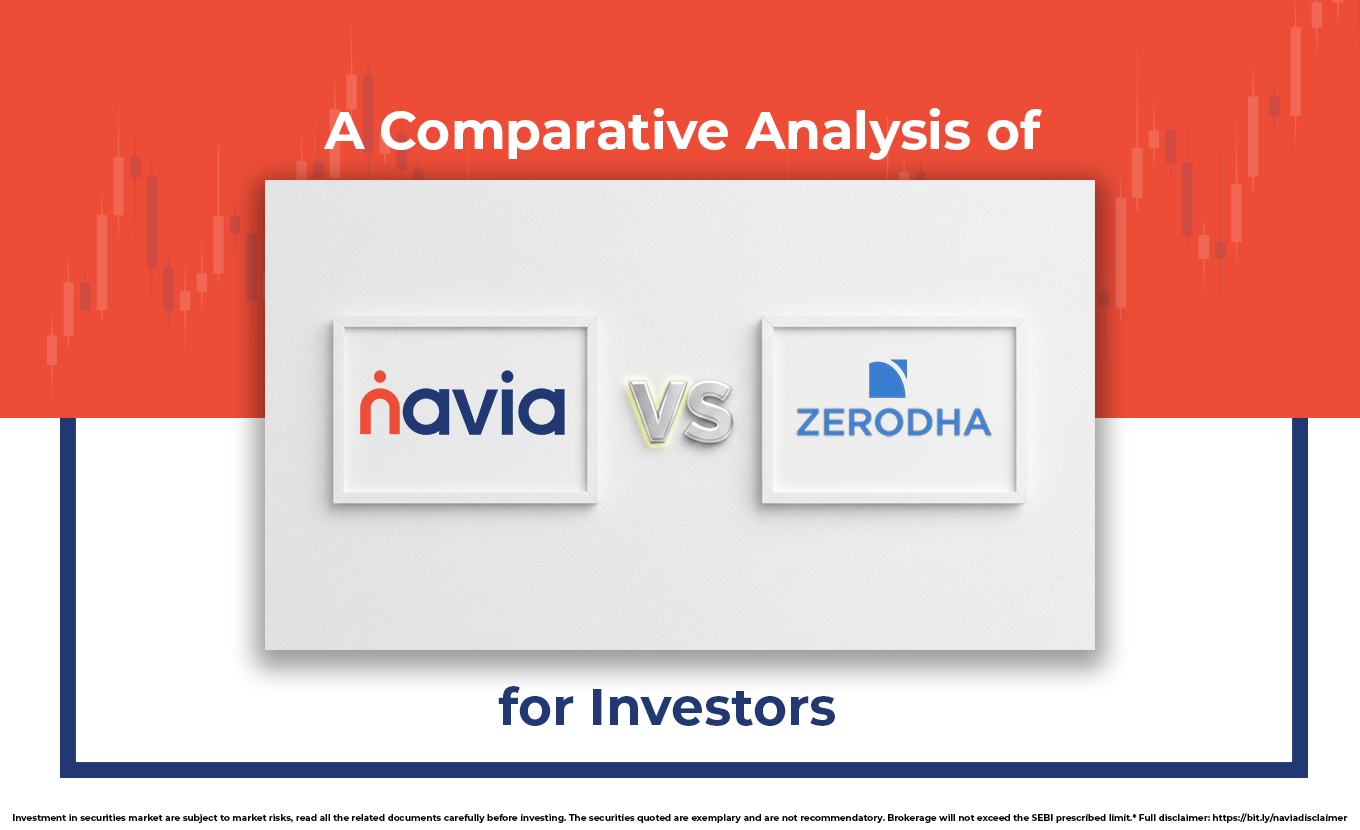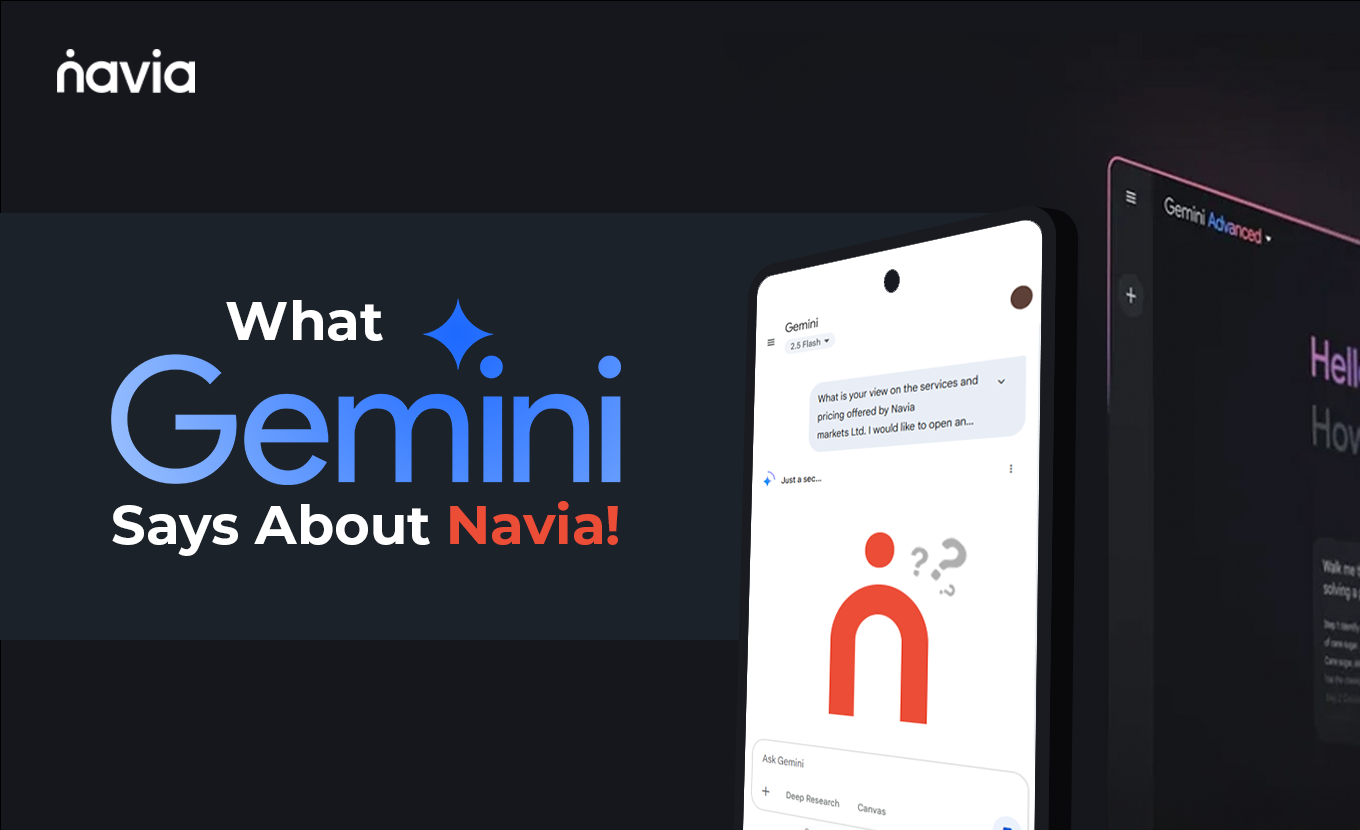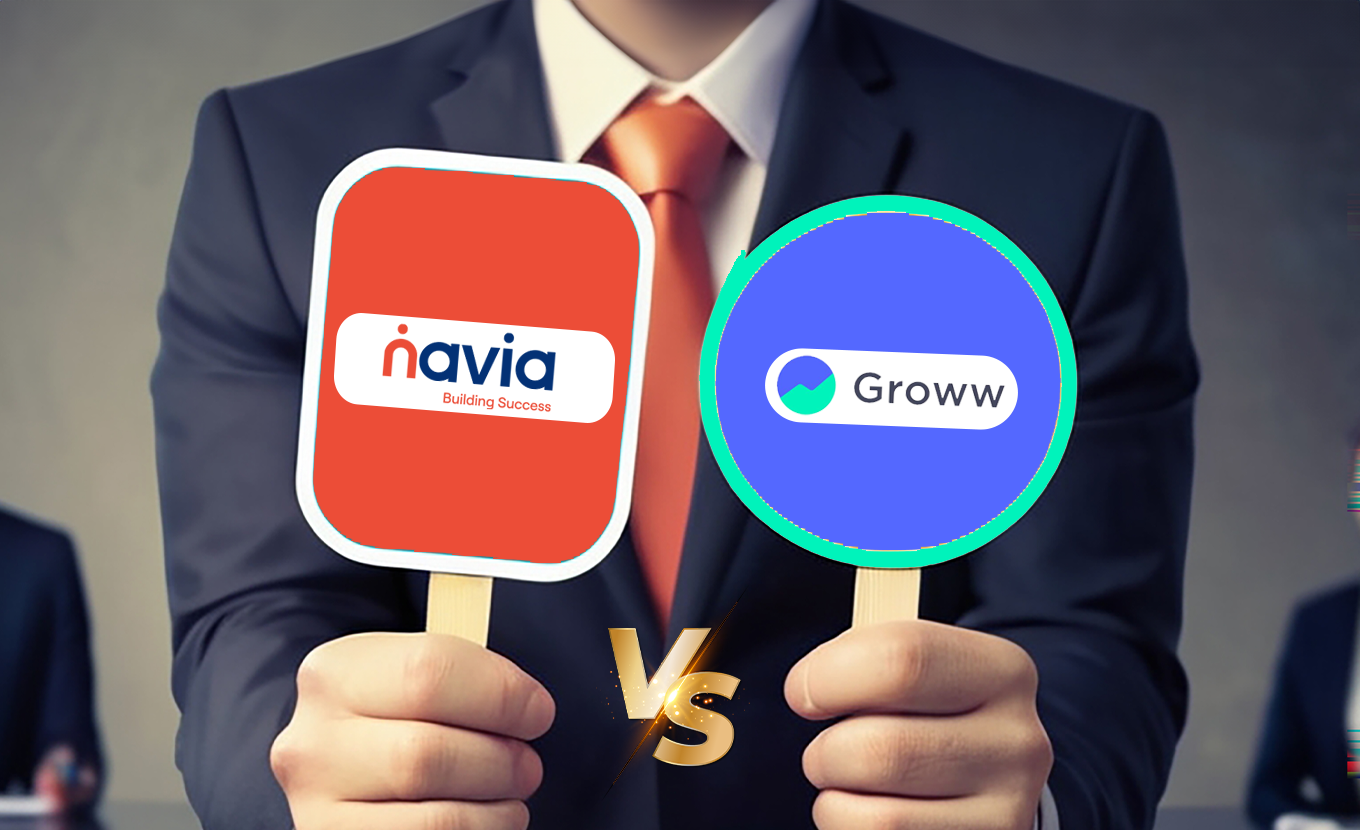Comparative Analysis of Navia and Zerodha: A Detailed Blog

- Comparative Table: Navia vs. Zerodha
- Summary of the Findings
- Navia’s Zero Brokerage Benefits: A Key Advantage Over Zerodha
- Key Areas Where Navia Offers Zero Brokerage
- How Zero Brokerage Translates to Real Savings?
- Advantages of Zero Brokerage with Navia
- Conclusion
In the fast-paced landscape of digital finance, your choice of a stockbroker is a pivotal factor that directly influences your market performance and bottom line. Both Navia and Zerodha stand as influential leaders in India’s brokerage sector, providing distinct platforms and tools designed to meet the diverse needs of modern investors and active traders. This comparison delves into the key performance metrics and service models of both firms to help you determine which aligns best with your financial objectives.
Comparative Table: Navia vs. Zerodha
| PARAMETERS | NAVIA | ZERODHA |
|---|---|---|
| TERMINALS | ||
| Web Platform | Navia Web | Kite |
| Desktop Platform | Navia EXE | NA |
| Mobile Platform | Navia APP | Kite mobile |
| Algo Platform | Navia API | Kite API |
| SUPPORT | ||
| Website | www.navia.co.in | zerodha.com |
| Support Articles | support.navia.co.in | support.zerodha.com |
| Email Support – Tickets | Portal Support – Tickets | Portal Support – Tickets |
| SMS | Yes | Yes |
| Yes | No | |
| WhatsApp Channel | Yes | Yes |
| Live Chat | Yes | No |
| 24/7/365 Chat Bot | Yes | No |
| PRICING | ||
| Account Opening Charges | Zero | Zero |
| AMC | Zero | ₹300/year + GST |
| Equity Delivery | Zero | Zero |
| Equity Intraday | Zero | Lower of 0.03% or ₹20 |
| Futures | Zero | Lower of 0.03% or ₹20 |
| Options | Zero | Flat ₹20 |
| MTF Interest Rate | Lowest at 0.041% per day | 0.3% or ₹20 per day |
| MTF Pledge/Unpledge Charges | Higher of 0.02% or ₹50 | ₹30 + GST |
| Direct Mutual Funds | Zero | Zero |
| Call & Trade Services | ₹50 + GST | ₹50 + GST |
| Admin Square Off Charges | ₹50 + GST | ₹50 + GST |
| Payment Gateway Charges – UPI | Zero | Zero |
| API Monthly Subscription Charges | ₹1500 + GST | ₹500 per month |
| PRODUCTS | ||
| Equity | Yes | Yes |
| Intraday | Yes | Yes |
| Futures | Yes | Yes |
| Options | Yes | Yes |
| Commodities | Yes | Yes |
| Currencies | No | Yes |
| Margin Trade Funding | Yes | No |
| ETF | Yes | Yes |
| Direct Mutual Funds | Yes | Yes |
| IPO | Yes | Yes |
| Bonds | No | Yes |
| PMS/Advisory Services | No | Yes |
| US Stocks | Yes | No |
| OTHER FEATURES | ||
| Watchlists | 10 | 25 |
| Market Depth | 5 ask and bid prices | 20 ask and bid prices |
| Indicators | 100+ | 100+ |
| Type of Charts | 11 | 11 |
| Option Chain | Yes | Yes |
| Free Option Strategy Builder | Yes | Through Sensibull |
| Results Calendar | Yes | No |
| Orders on Charts | Yes | Yes |
| Profit and Loss on Charts | No | No |
| Technical Analysis | Yes | Yes |
| Fundamental Analysis | Yes | Through Kite Platform |
| Research | No | Yes |
| Price Alert | Yes | Yes |
| Free Ready-made ETF Baskets | Yes | Yes |
| Free Custom ETF Baskets | Yes | Yes |
| TYPE OF ORDERS | ||
| CNC | Yes | Yes |
| Intraday | Yes | Yes |
| BO | Yes | Yes |
| CO | Yes | Yes |
| MTF | Yes | Yes |
| Basket Order | Yes | Yes |
| AMO | Yes | Yes |
| GTT | Yes | Yes |
| Single Square Off Button | Yes | Yes |
| Multi-Select Square Off Button | Yes | Yes |
| Share Screen Option | Yes | No |
Summary of the Findings
While both platforms provide a diverse suite of services designed for various investor profiles, a closer look at the comparison reveals specific strategic areas where Navia holds a clear edge over Zerodha.
Navia’s Zero Brokerage Benefits: A Key Advantage Over Zerodha
A standout benefit for those using this platform is the comprehensive zero brokerage policy, which serves as a significant differentiator from many traditional and discount competitors. By eliminating per-order commissions, it provides a direct boost to a trader’s net profitability and offers substantial long-term cost savings. Below, we explore how this fee-free structure enhances your trading efficiency and allows you to retain a larger share of your market gains.
What is Zero Brokerage?
“Zero brokerage” eliminates the traditional commission fees typically charged for every buy or sell order, covering everything from long-term equity delivery to high-frequency intraday and derivatives trading. Rather than losing a portion of every trade to percentage-based or flat-fee commissions, Navia users can execute unlimited transactions without the burden of accumulating costs. This structural advantage significantly lowers the break-even point for each trade, allowing compounding returns and market gains to build wealth more effectively over the long term.
Key Areas Where Navia Offers Zero Brokerage

Equity Delivery
Navia: Zero brokerage on all equity delivery trades.
Zerodha: Zero brokerage on equity delivery as well.
Benefit: For long-term investors, this means that you can buy and hold stocks without any additional costs, allowing your investments to grow unencumbered by brokerage fees.

Equity Intraday
Navia: Zero brokerage on intraday trades.
Zerodha: Charges the lower of 0.03% or ₹20 per trade.
Benefit: Active traders can execute numerous intraday trades without worrying about brokerage fees eating into their profits. This is particularly beneficial for scalpers or day traders who make multiple trades within a single trading session.

Futures Trading
Navia: Zero brokerage on futures trading.
Zerodha: Charges the lower of 0.03% or ₹20 per trade.
Benefit: Futures traders, who often engage in larger contract sizes, can benefit from significant cost savings, as they do not have to pay any brokerage fees on their trades.

Options Trading
Navia: Zero brokerage on options trading.
Zerodha: Charges a flat ₹20 per order.
Benefit: Options traders can enhance their profitability by avoiding the flat fee typically charged per trade by other brokers. This is especially advantageous for traders who employ strategies involving multiple legs, such as spreads, straddles, or strangles.

Direct Mutual Funds
Navia: Zero brokerage on direct mutual fund investments.
Zerodha: Also offers zero brokerage on direct mutual funds.
Benefit: Investors can build their mutual fund portfolio without any additional costs, ensuring that all their investments go directly into the funds rather than being reduced by brokerage fees.
How Zero Brokerage Translates to Real Savings?
To illustrate the impact of zero brokerage, let’s consider an example:
⮞ Scenario 1: A trader executes 50 intraday trades in a month with an average trade value of ₹2,00,000 per trade.
Zerodha’s Cost: Assuming the lower of 0.03% or ₹20, the trader would pay ₹1,000 in brokerage fees.
Navia’s Cost: Zero brokerage means the trader pays ₹0 in brokerage fees.
Savings: The trader saves ₹1,000 in a single month, which can be reinvested or contribute to overall profitability.
⮞ Scenario 2: An options trader executes 100 orders in a month.
Zerodha’s Cost: ₹20 per order results in ₹2,000 in brokerage fees.
Navia’s Cost: Zero brokerage means the trader pays ₹0 in brokerage fees.
Savings: The trader saves ₹2,000, which could be significant over a longer period, especially for active options traders.
Advantages of Zero Brokerage with Navia
🔸 Increased Profitability: By removing brokerage fees, you ensure that a higher percentage of your returns remains in your trading account. This is a vital advantage for active traders, who frequently find their profit margins squeezed—or even erased—by the cumulative burden of commission costs on every trade.
🔸 Encourages Active Trading: Freeing traders from the burden of commission fees empowers them to engage more dynamically with the market. By eliminating per-trade costs, investors can execute higher-frequency strategies and capitalize on small price movements without worrying that transaction expenses will erode their overall profitability.
🔸 Simplifies Cost Management: Eliminating brokerage fees simplifies financial management by removing the need to track complex transaction costs, allowing you to clearly see your net returns at a glance.
🔸 Ideal for Beginners: Zero-brokerage models are particularly beneficial for novice traders during their learning phase. By eliminating per-trade commissions, these platforms alleviate financial stress, enabling beginners to experiment with various strategies and refine their skills without the burden of escalating transaction costs.
Superior Support and Accessibility
When comparing two major players like Navia and Zerodha, the distinction in service models is clear: while Zerodha focuses on a minimalist, self-service discount model, Navia emphasizes highly accessible and human-centric support.
🔹 WhatsApp and Live Chat Support: Unlike Zerodha, Navia prioritizes real-time accessibility by offering dedicated support through WhatsApp and Live Chat. This is bolstered by an AI-powered 24/7/365 chatbot, ensuring clients can resolve queries or access trade reports instantly, even during off-market hours.
🔹 More Comprehensive EXE Platform: Navia offers a dedicated desktop platform (Navia EXE) along with a comprehensive API for algorithmic trading, whereas Zerodha lacks a desktop platform.
Expanded Product Offerings
Navia provides access to a broader range of products and services that cater to a wider array of investor needs.
🔹 Margin Trade Funding (MTF): Navia offers MTF with interest rates starting from 14.99%, which is not available with Zerodha. This feature can be crucial for traders looking to leverage their positions.
🔹 Access to US Stocks: Navia allows clients to trade US stocks, a feature that is not available with Zerodha. This gives Navia clients the ability to diversify their portfolios internationally.
Enhanced Trading Features
Navia provides additional trading features that can enhance the trading experience and potentially improve trading outcomes.
🔹 Results Calendar and Free ETF Baskets: Navia offers a results calendar and free ready-made and custom ETF baskets, which are not available with Zerodha. These features can help investors stay informed and make better investment decisions.
🔹 Single margin for Equity and Commodity: One significant advantage of Navia over other platforms like Zerodha is its single margin for Equity and Commodities. This feature allows traders who are active in both segments to maintain a single margin, eliminating the need to keep separate funds for each segment. As a result, clients benefit from better capital flexibility and more efficient utilization of funds, enabling them to seamlessly switch between equity and commodity trades without the hassle of managing two separate margin accounts. This not only streamlines the trading process but also maximizes capital efficiency for traders.
🔹 Single and Multi-Select Square Off Buttons: Navia provides single and multi-select square-off buttons, as well as a share screen option, making it easier to manage and monitor trades efficiently.
Conclusion
In summary, the choice between these two platforms depends on an investor’s specific requirements regarding trading interface and cost structure. While one provides a dedicated desktop terminal (EXE) and specialized API support for algorithmic traders, the other has transitioned entirely to a high-performance web and mobile ecosystem.
Both brokers adhere to current regulatory standards, offering low-cost entry points into the Indian capital markets. By evaluating the stability of the web interface versus the familiarity of a desktop application, traders can select the environment that best supports their execution style and technical needs.
Do You Find This Interesting?
DISCLAIMER: Investments in the securities market are subject to market risks, read all the related documents carefully before investing. The securities quoted are exemplary and are not recommendatory. Brokerage will not exceed the SEBI prescribed limit.






